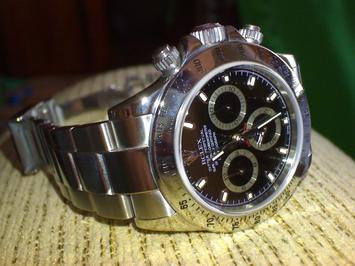
An article about the resurgence of independent bookstores has been making the rounds.
"Between 2009 and 2015, more than 570 independent bookstores opened in the U.S., bringing the total to more than 2,200; that’s about a 35 percent jump after more than a decade of decline. The surprise recovery may hold lessons for other small retailers. Stores like Anderson’s are helping Harvard Business School professor Ryan Raffaelli solve an economic mystery. “I often say, these are stories of hope,” Raffaelli laughed."
Bookstores may be following the same story arc of previous items disrupted by digital: the analog product becomes the luxury option. It goes something like this:
• A digital (or other technologically enabled version) of an analog product is released
• The tech version becomes the hot item
• The tech version achieves marketplace hegemony
• The high end market re-embraces the analog version as a luxury product
Think about watches. Originally watches were mechanical devices that required winding, etc. Then the quartz watch came along and replaced the mechanical movement of the watch with an electronic one. Quartz watches – cheap, accurate, and no-wind – took over the market. Many old line watch makers fell on hard times. Then mechanical watches became the luxury item, with connoisseurs scoffing at quartz watches. There’s a thriving luxury watch industry to this day.
The same thing happened with music. Vinyl gave way to cassette tapes, then CDs, then online digital. But in recent years vinyl has made a major comeback and is now a high end luxury option.
I expect the same thing to happen with print. It was cool to get your information online when that was cutting edge. Now that everyone does it, hip folks want the print edition. We’ve seen a proliferation of high end, niche glossy magazines, for example.
The retail experience may end up the same. Everybody goes online for convenience. But as online starts to saturate certain markets, the high end consumer will revert back to the in-store experience.
It’s a pattern to keep an eye on for future products.
This piece originally appeared on Urbanophile.
Aaron M. Renn is a senior fellow at the Manhattan Institute, a contributing editor of City Journal, and an economic development columnist for Governing magazine. He focuses on ways to help America’s cities thrive in an ever more complex, competitive, globalized, and diverse twenty-first century. During Renn’s 15-year career in management and technology consulting, he was a partner at Accenture and held several technology strategy roles and directed multimillion-dollar global technology implementations. He has contributed to The Guardian, Forbes.com, and numerous other publications. Renn holds a B.S. from Indiana University, where he coauthored an early social-networking platform in 1991.
Photo: Via Wikipedia (photographer not listed), CC BY-SA 3.0












